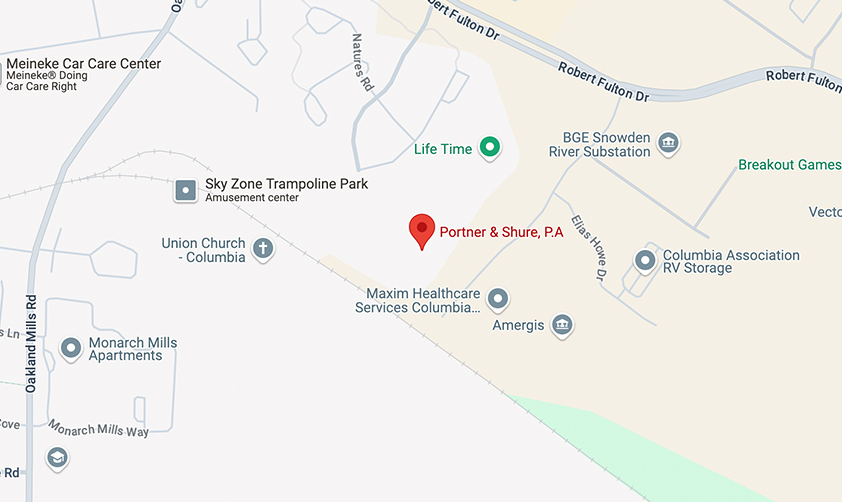A recent medical study has unveiled a concerning connection between the contraceptive injection Depo-Provera and an increased risk of developing meningioma, a type of brain tumor. Depo-Provera contains medroxyprogesterone acetate, and prolonged use of this active ingredient has been linked to severe health implications for women who rely on this form of birth control.
The emergence of meningioma can significantly disrupt an individual's life. Symptoms may range from headaches and vision problems to seizures and cognitive difficulties, all of which can interfere with daily activities and overall well-being. In many cases, addressing meningioma requires prompt medical intervention, which may include surgery, radiation therapy, or other intensive treatments.
For those affected, a pathway is available to seek justice and compensation. Holding pharmaceutical companies like Pfizer accountable for the harm caused by Depo-Provera is not just about financial restitution—it's about advocating for victim health and rights. Engaging an experienced attorney can be instrumental in navigating the complexities of such a lawsuit. A lawyer can help build a strong case, gather necessary evidence, and strategize effectively to pursue a just outcome.
At Portner & Shure, P.A., we have dedicated decades to representing clients suffering due to negligence. Our commitment to justice drives us to hold wrongdoers accountable and provide steadfast support to those we serve. We recognize the physical, emotional, and financial toll that such medical issues can impose, and we are here to guide you through every step of the legal process.
If you or a loved one has developed meningioma after using Depo-Provera, we encourage you to reach out for a free case evaluation. Please call us at ((410) 995-1515 or contact us online to discuss your situation.
What Is Depo-Provera?
Depo-Provera, known generically as medroxyprogesterone acetate, is a synthetic form of the hormone progesterone. It's delivered via an injection, typically in the arm or buttock, once every 12 weeks.
Depo-Provera prevents pregnancy through several mechanisms that work together to inhibit the natural processes involved in conception:
- Suppressing ovulation: The injection releases medroxyprogesterone acetate into the bloodstream, which signals the body to stop releasing eggs from the ovaries. Without ovulation, no egg is available for fertilization by sperm.
- Thickening cervical mucus: Depo-Provera increases the thickness of the mucus around the cervix. This thicker mucus acts as a barrier, making it more difficult for sperm to enter the uterus and reach any eggs that might have been released.
- Thinning the uterine lining: The medication causes the lining of the uterus (the endometrium) to become thinner. A thinner lining is less receptive to a fertilized egg, reducing the likelihood of implantation should fertilization occur.
Understanding Meningiomas
A meningioma is a type of brain tumor that forms in the meninges—the protective layers of tissue covering the brain and spinal cord. While meningiomas are one of the most common types of primary brain tumors, their impact can vary significantly based on their size, location, and growth rate.
Meningiomas are classified into three grades based on how aggressively the tumor cells grow and their likelihood of recurring:
- Grade I: These are the most prevalent type, accounting for most meningioma cases. Grade I tumors grow slowly.
- Grade II: These tumors exhibit more irregular cell structures than Grade I and tend to grow at a moderate rate. They also have a higher chance of returning after surgical removal.
- Grade III: The least common but most aggressive, Grade III meningiomas grow rapidly and can invade nearby brain tissues. They are malignant, meaning they are cancerous and require urgent treatment.
While many meningiomas are considered benign, they are not without risk. The brain and spinal cord are encased in a rigid skull and vertebrae, leaving little room for expanding tissues. As a meningioma grows, it can exert pressure on critical parts of the brain or spinal cord, leading to symptoms that can severely impact an individual's quality of life. Even benign meningiomas can interfere with essential functions and, without intervention, may lead to permanent neurological damage.
The symptoms of a meningioma depend on the tumor's size, location, and growth rate. Common symptoms include:
- Headaches
- Vision problems
- Seizures
- Numbness or weakness in the limbs
- Speech or memory difficulties
- Hearing loss
The primary treatment for most meningiomas is surgical removal, especially if the tumor is accessible and causing symptoms. Surgery aims to remove as much of the tumor as possible without damaging surrounding brain tissues.
For some meningiomas, particularly those in difficult-to-reach areas or of higher grades, additional therapies like radiation may be recommended to control growth and reduce the risk of recurrence.
Depo-Provera Use and Increased Risk of Meningioma
A recent study published in The BMJ in March 2024 has brought to light a significant health risk for women using the birth control injection Depo-Provera. Conducted in France, this study analyzed the health data of over 108,000 women who had been prescribed medroxyprogesterone acetate, the active ingredient in Depo-Provera. Findings indicate that women who used medroxyprogesterone acetate for a year or more were five times more likely to develop a meningioma compared to those in the study's control group.
How Depo-Provera May Influence Brain Tumor Growth
Depo-Provera works primarily through high levels of synthetic progestin, which functions similarly to the hormone progesterone in the body. While progesterone is crucial in regulating the reproductive system, its impact on brain tissue is less understood.
Research suggests prolonged exposure to high levels of progestin may have unintended effects, primarily on cells expressing hormone receptors—such as those in meningiomas. Depo-Provera, with its high dose of progestin, could overstimulate these receptors, leading to abnormal cell activity and increased tumor development.
Legal Rights of Depo-Provera Users
If you or a loved one has been diagnosed with meningioma following Depo-Provera use, you may be eligible for legal recourse under product liability laws. Product liability laws serve to hold manufacturers accountable when their products cause harm to consumers.
In Depo-Provera lawsuits, the two primary legal grounds under which claims may be brought include:
- Failure to warn: One of the most serious allegations against Pfizer in Depo-Provera lawsuits is that the company failed to warn consumers and healthcare providers about the risk of developing meningioma with prolonged use. Under product liability law, if a manufacturer is aware (or should have been aware) of serious risks associated with a product, it has a responsibility to disclose those risks. By not doing so, Pfizer may be considered liable for harm caused by its product.
- Design defect: Another potential legal argument is that Depo-Provera is inherently unsafe due to its design. The drug’s formulation includes a high dose of progestin, which may contribute to an elevated risk of meningioma. When a product’s design poses unreasonable risks to consumer health, it can be grounds for a lawsuit. Depo-Provera’s high progestin levels are central to these claims, as the hormone may overstimulate certain cells, leading to tumor growth.
Generally, you may qualify for a Depo-Provera lawsuit if you used the contraceptive for a minimum of one year (equivalent to four injections) and you have been diagnosed with meningioma following the usage period.
In a mass tort lawsuit related to Depo-Provera injuries, you may seek several forms of compensation to address the physical, emotional, and financial burdens you face:
- Past and future medical expenses
- Past and future lost income
- Pain and suffering
- Loss of enjoyment of life
- Shortened life expectancy
Advocating for Fair Compensation
At Portner & Shure, P.A., we take drug injury cases with the utmost seriousness, knowing that our clients are often dealing with complex medical issues and challenging life changes. Our team has extensive experience handling pharmaceutical litigation and is well-versed in the intricate legal and scientific knowledge required for these cases. We are dedicated to holding drug manufacturers accountable, especially when their products cause harm to consumers. With a commitment to thorough research, compelling evidence gathering, and strategic representation, we strive to provide exceptional legal advocacy in every case we take on.
As a trusted law firm serving clients in Maryland, Virginia & Washington, D.C., we know each jurisdiction's unique legal requirements and processes. Our team can navigate the complexities of pharmaceutical litigation in these regions, delivering the personalized and effective representation our clients need.
We are currently evaluating brain tumor-related Depo-Provera cases and are available to answer your questions and discuss your legal options. Contact us at (410) 995-1515.














